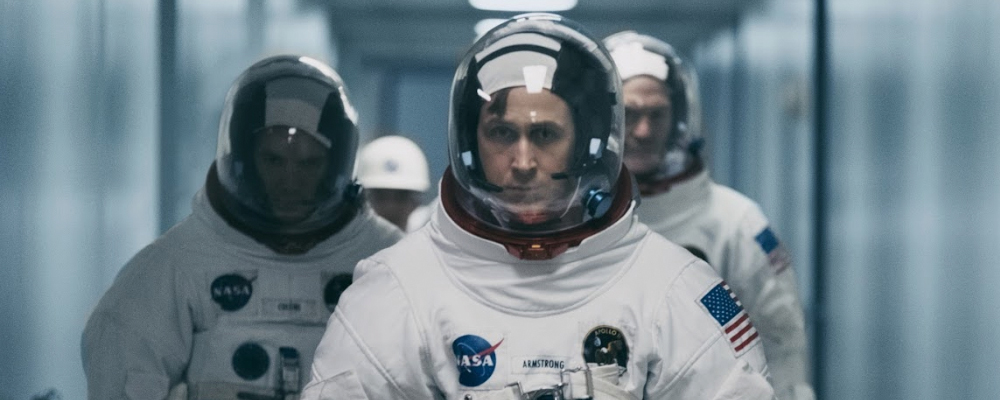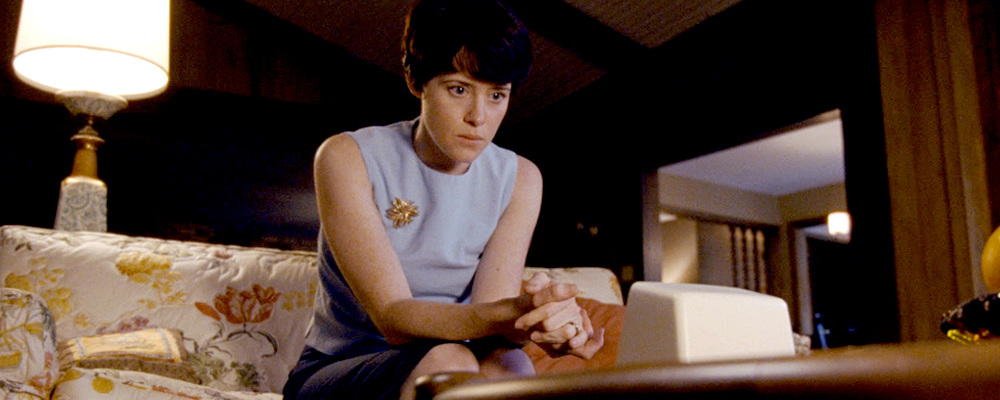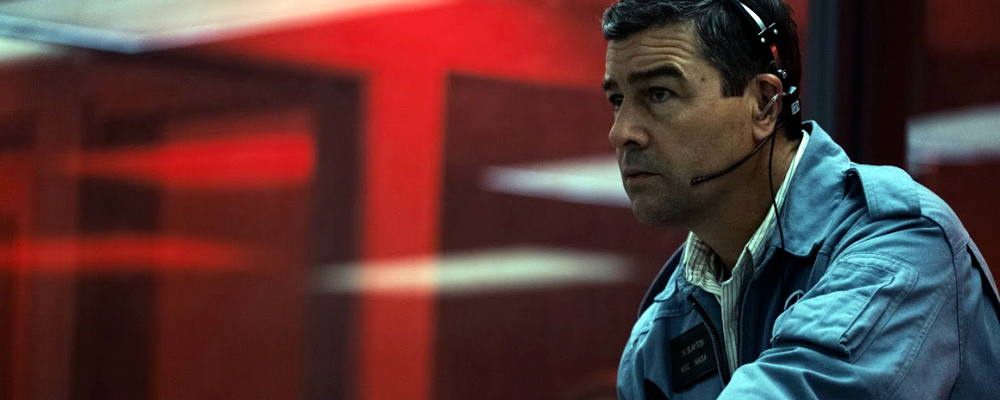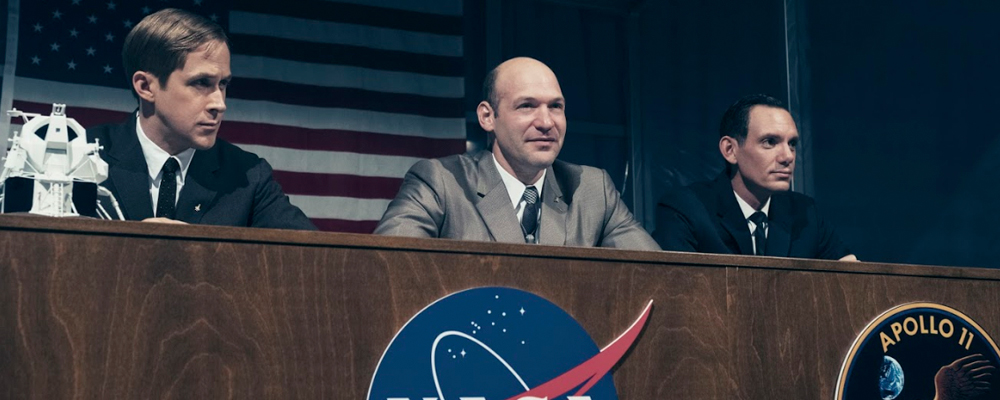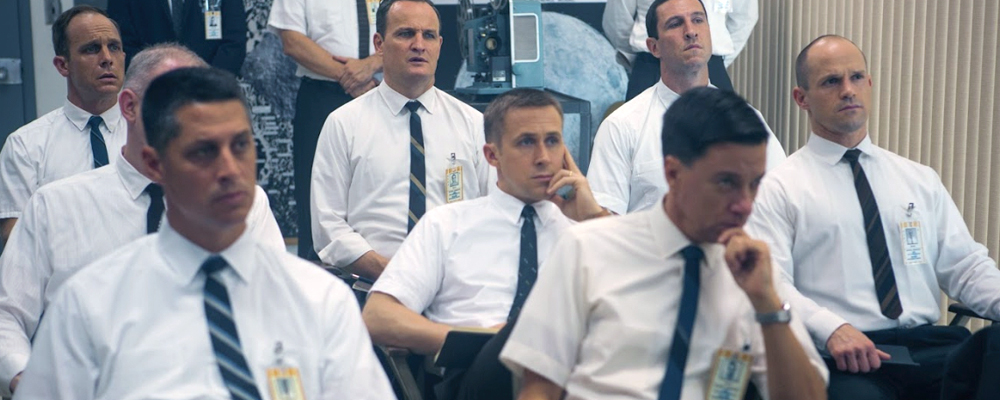Ryan Gosling Is Neil Armstrong in Captivating ‘First Man’
Alci Rengifo
What must it have been like to blast into space in machines so primitive by our current standards? It takes a certain kind of person to venture into such an unknown. “First Man” tells the story of Neil Armstrong on both a human and cosmic scale. Director Damien Chazelle continues to expand in versatility with this special film. Having scored a Best Director Oscar for 2016’s musical fantasy “La La Land,” he now abandons technicolor for a film that is both visually grandiose and stark. Its exhilaration comes from the very idea of space travel, with all of its heroism and danger.
The film opens in the early 1960s as test pilot Neil Armstrong (Ryan Gosling) and his wife Janet (Claire Foy) find themselves dealing with the death of their young daughter. Still processing the pain, Armstrong learns that NASA is recruiting pilots for the upcoming Gemini space project. The Cold War is on and the U.S. and Soviet Union are racing to make advances in space travel, with the ultimate prize being landing on the Moon. Armstrong begins the rigorous training and moves into a neighborhood populated by fellow astronauts, including Ed White (Jason Clarke), Buzz Aldrin (Corey Stoll) and Guss Grissom (Shea Whigham). But being part of the space program also seems to channel Armstrong’s capacity to close off and use his capacity to focus to put aside the lingering pain of loss. Janet notices as do the other guys, but they also understand this is one of humankind’s greatest enterprises. As Gemini soon transitions into the legendary Apollo missions, Armstrong’s headstrong attitude makes him perfect for taking on a mission that is both historic and dangerous.
Several great films have been made about the race to the Moon, in particular “The Right Stuff” and “Apollo 13,” Chazelle’s effort ranks with those titles while standing out for its intimacy. “First Man” opens with a thrilling sequence in which Armstrong touches the edge of space with a test plane and nearly crashes. It would be a scene appropriate for a good action movie, but here it transitions into a well-sketched portrait of Armstrong. We tend to learn about historical figures at a textbook level. We know Armstrong is the first man to walk on the Moon, but Chazelle imagines him as an almost solitary figure, very much devoted to his wife, but driven by the loss of his daughter to find solace in the intensity of work. That’s not to say the film conceives Armstrong’s accomplishments as solely driven by heartbreak, but there is a special depth to the idea that great men are driven by personal experiences, not just mere heroism. The screenplay by Josh Singer, based on a book by James R. Hansen, never feels like a parade of famous cameos or moments. This film is unaware that Neil Armstrong is famous. He is played by Ryan Gosling with an air of controlled discipline that sometimes cracks in quiet tension. After a fellow pilot dies in a crash, he seeks solitude and gets annoyed when Ed White follows him to coax some conversation. He deals with the pain by looking up into the sky with a lens. When he’s about to leave for the historic Moon launch he can’t quite articulate to his wife why he won’t go say goodbye, possibly for the last time, to his children. But it is precisely this control of character that makes the NASA heads choose him for the riskiest mission of all.
Visually “First Man” is a wonderful achievement. Chazelle and his cinematographer, Linus Sandgren, who won an Oscar for his work on “La La Land,” evoke the domestic world of the Armstrongs with a grainy look that almost seems like old home movies from the 60s. The texture of these scenes has a vivid realism that feels immediate, as if we are sitting amongst great events and private moments. But the greatest visual feat in “First Man” is how it manages to put us inside the space craft. Instead of doing the standard, wide space shots early on that we’ve seen before in movies like “Apollo 13” or “Interstellar,” Chazelle relies on close, cramped shots which evoke the crammed space of these early crafts with computer systems that pale next to your current iPhone. When a rocket launches with the astronauts Chazelle keeps the camera on the small cockpit window, so we can see the atmosphere’s flames, then blue sky turns into the darkness of space. A harrowing moment involves a real event where Armstrong and another astronaut were assigned a mission to attempt docking two crafts in orbit, but a malfunction caused a near tragedy when the two crafts began to spin wildly out of control. Chazelle keeps us inside the cockpit, almost succeeding in making the spinning, the tension, the near passing out feel palpable. Scenes like this go one of the deeper truths of “First Man,” that humankind’s journey into space is a perilous one. It is not surprising that a few times in the film the endeavor is compared to the early voyages to the New World. The tragic fire that killed the crew of Apollo1 is recreated here, almost as a nightmarish rendering of everything that can (and has) gone wrong with such an ambitious march towards progress.
The great finale is and must of course be the Moon landing. If possible, please do yourself a favor and watch this movie on the best IMAX screen you can find, in particular for this moment. Chazelle switches the frame size to the 70mm IMAX format and the entire canvas is enveloped in a stunning, immersive lunar landscape. When the lunar module door is opened we are swept out into the Moon’s surface. The scene shifts from the point of view of Armstrong as he steps down that famous ladder, and the great, grey sea of still dust. Indeed, this is what it probably looked and felt like. A beautiful moment involving Armstrong, alone and staring into a crater, again adds an intimate human dimension to a cosmic experience.
“First Man” tells Neil Armstrong’s story with a unique sensibility, but in its grander scope it strikes an interesting challenge. If we were capable of such glorious and risky ventures nearly 50 years ago, why have we slowed down now? The film’s final, poetic moments ask this question with a breathtaking visual elegance. The most special thing about this story is that it is not science fiction, it was real, it happened, and it asks us to dream again.
“First Man” opens Oct. 12 in theaters nationwide.

